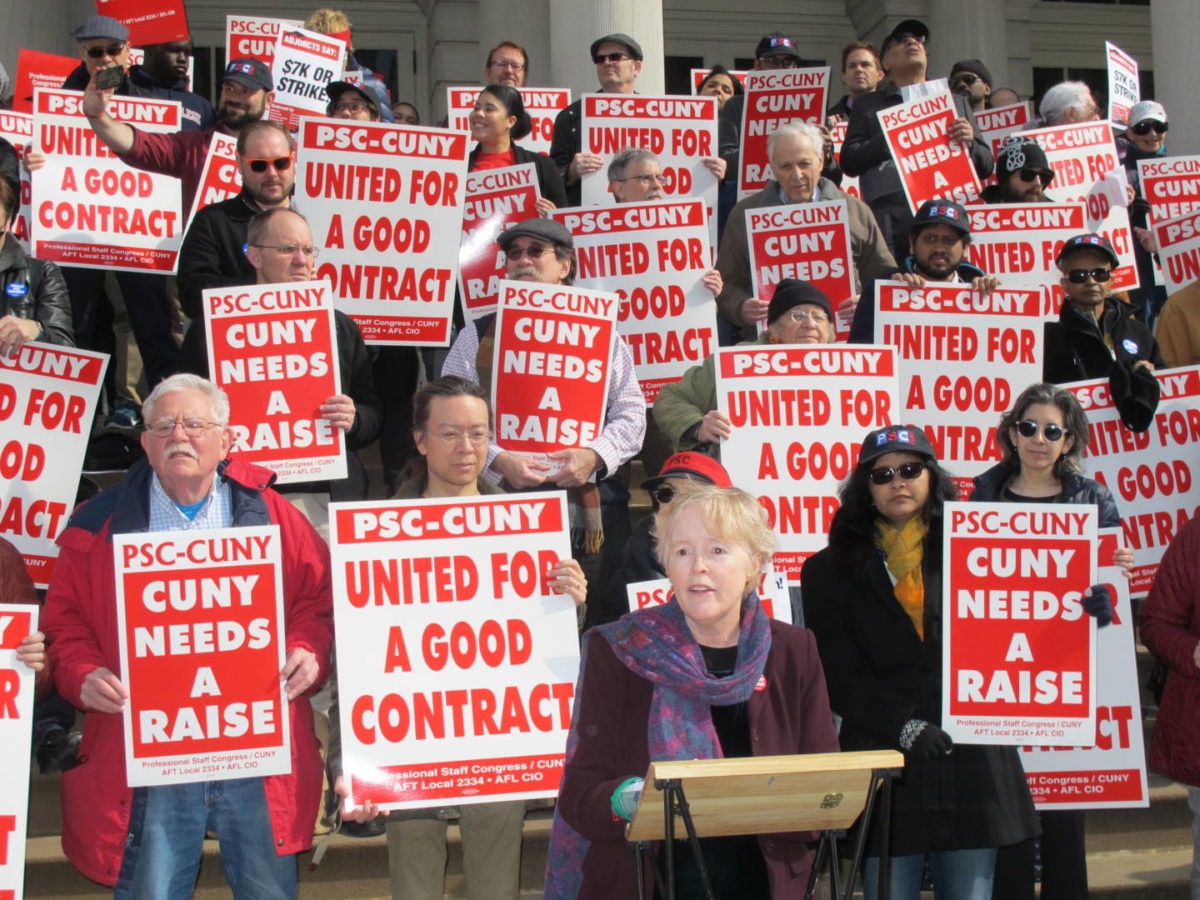The challenge of working without a livable wage has been faced by adjunct faculty throughout all of CUNY and they continue to face it to this day. Despite putting in substantial hours of work each semester for several classes and, in many cases, across several different campuses, many feel that the amount they are paid for it all is not reflective of the actual amount of work being done.
On this issue, a long-time adjunct whom has worked on various CUNY campuses chose to speak with The Knight News anonymously, out of concerns over job security.
“I’ve been working full time, but I’m earning part-time wages,” the professor said. “Full time because so much of the work I do is outside the classroom…at this point I’m just doing what I can to cobble together a barely living wage.”
Another issue of note was that of limitations on allowed working hours, which cap the salaries of CUNY adjuncts at a level below a living wage. “I got burned in the past when money from non-teaching adjunct employment was a nice addition to my salary,” the professor said, “and I was suddenly told that I had exceeded the hours I’m allowed to work and had to give up that source of employment.”
Noting a positive change for a number of longstanding adjuncts, however, the professor pointed to contracts fought for by the Professional Staff Congress – the union which, as per its website, “Represents 30,000 faculty and staff at the City University of New York (CUNY) and the CUNY Research Foundation.” Its members secure their positions for periods of two to three years, as opposed to appointments by semester.
The PSC has been an active force in attempting to fight for higher adjunct wages, holding numerous events revolving around the issue and consistently engaging in negotiations with the university. A representative of theirs and higher educational officer on campus, Arthur Ben Chitty, also took time to speak with The Knight News about the ongoing situation.
“One of our main goals in current contract negotiations is to get a minimum of $7,000 per 3-credit course,” he explained. “This is a standard that was set at Fordham and NYU, so it’s not really way out of line, but it’s more than twice what adjuncts currently get.”
The $7,000 goal is one that the PSC has pursued for some time, with members such as Richard Vetere, an adjunct assistant professor here at QC, having provided testimony explaining their situation at an April 2017 hearing with the CUNY Board of Trustees. “My pay,” Vetere said at the time, “though I’ve been teaching nearly non-stop since 1983, is abysmal.”
As indicated with the achievement of longer contracts for some faculty members, the union has found some success in its ongoing struggle to secure more livable wages for adjuncts throughout CUNY. This success has not come quickly or easily, and despite the changes that have come so far, many adjuncts still work for far more hours than they are actually paid.
Part of the reason for this, according to Chitty, is that some are teaching without being on the university payroll, an issue that partially factored into proposals discussed during previous rounds of contract negotiations.
“In February, the university finally put a financial offer on the table in contract negotiations,” Chitty said. “That financial offer recognized the need to pay adjuncts a little bit more, but they only offered a few hundred dollars per credit, and they took it out of the across-the-board raised for the rest of the union.”
The counter-proposal to this, as he explained, involved requesting for adjuncts to instead be paid for all of the hours they actually work. For this, several hundred adjuncts were asked by the union to keep a “meticulous record” of the hours they worked for a particular week, to be compiled into a report that will be used for future negotiations.
The next major step in this ongoing effort will be taking place on April 17, when a hearing moderated by the PSC will be held at QC with state senators Tony Ann Stavisky and John Liu from 10:00 – 11:30 AM.














